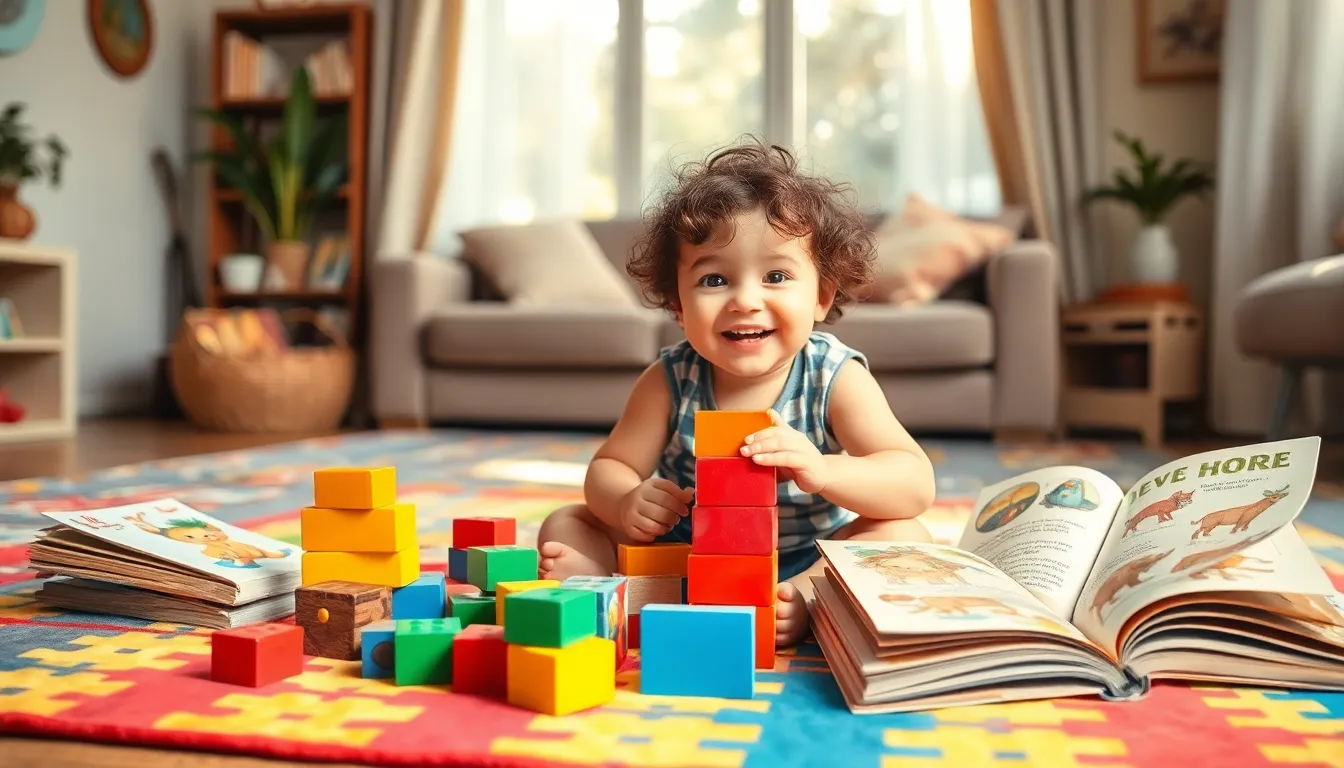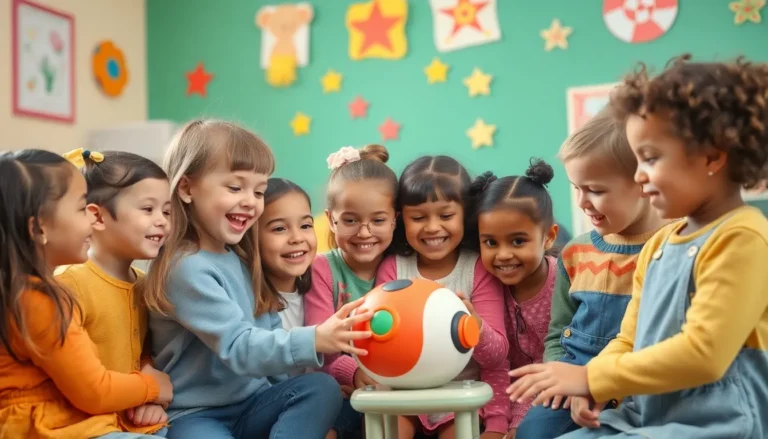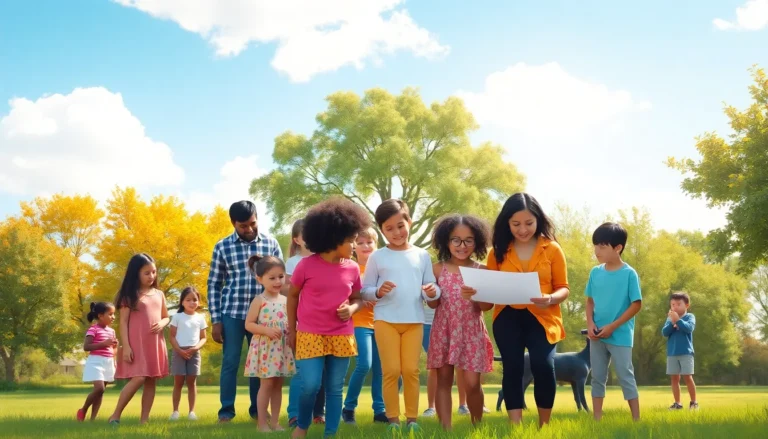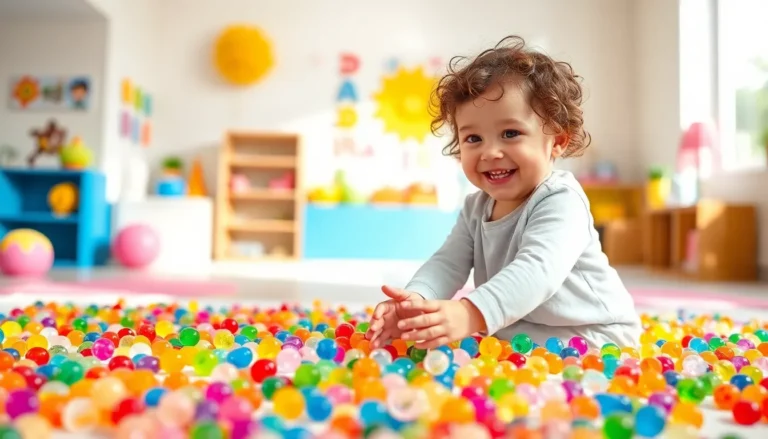Table of Contents
ToggleEvery parent knows that toddlers are like tiny sponges, soaking up everything around them. But how do you ensure those sponges absorb the good stuff? Enter toddler learning tools—those magical gadgets and games that turn learning into playtime. From colorful building blocks to interactive storybooks, these tools make education feel less like a chore and more like an adventure.
Imagine your little one giggling while mastering the alphabet or discovering shapes while building a fort. With the right tools, learning becomes an exciting journey rather than a tedious task. So buckle up, because exploring the world of toddler learning tools is about to get fun! Whether you’re a parent, caregiver, or just a fan of pint-sized geniuses, you’ll want to dive into this treasure trove of educational wonders that promise to make learning a blast.
Overview of Toddler Learning Tools
Toddler learning tools play a crucial role in shaping early educational experiences. Engaging items like colorful building blocks enhance motor skills while teaching spatial awareness. Interactive storybooks not only make reading enjoyable but also foster language development.
Music instruments provide auditory stimulation, helping toddlers develop rhythm and coordination skills. Puzzle games encourage critical thinking and problem-solving abilities as children learn to fit pieces together. Art supplies offer a creative outlet, enabling self-expression and boosting fine motor skills.
Educational apps combine technology with learning, giving toddlers access to interactive lessons on various subjects. Flashcards present vocabulary and numbers visually, reinforcing memory retention through repetition.
Outdoor toys, such as climbing structures and balance beams, enhance physical development while promoting social interactions. Sensory bins filled with items like rice, sand, or water allow for hands-on exploration and discovery. Each tool supports multiple learning styles, catering to different interests and preferences.
Collectively, toddler learning tools create a rich, stimulating environment that promotes holistic growth. While choices abound, it’s essential to select resources aligned with each child’s developmental stage. By prioritizing engagement and exploration, these tools offer valuable foundations for lifelong learning.
Types of Toddler Learning Tools
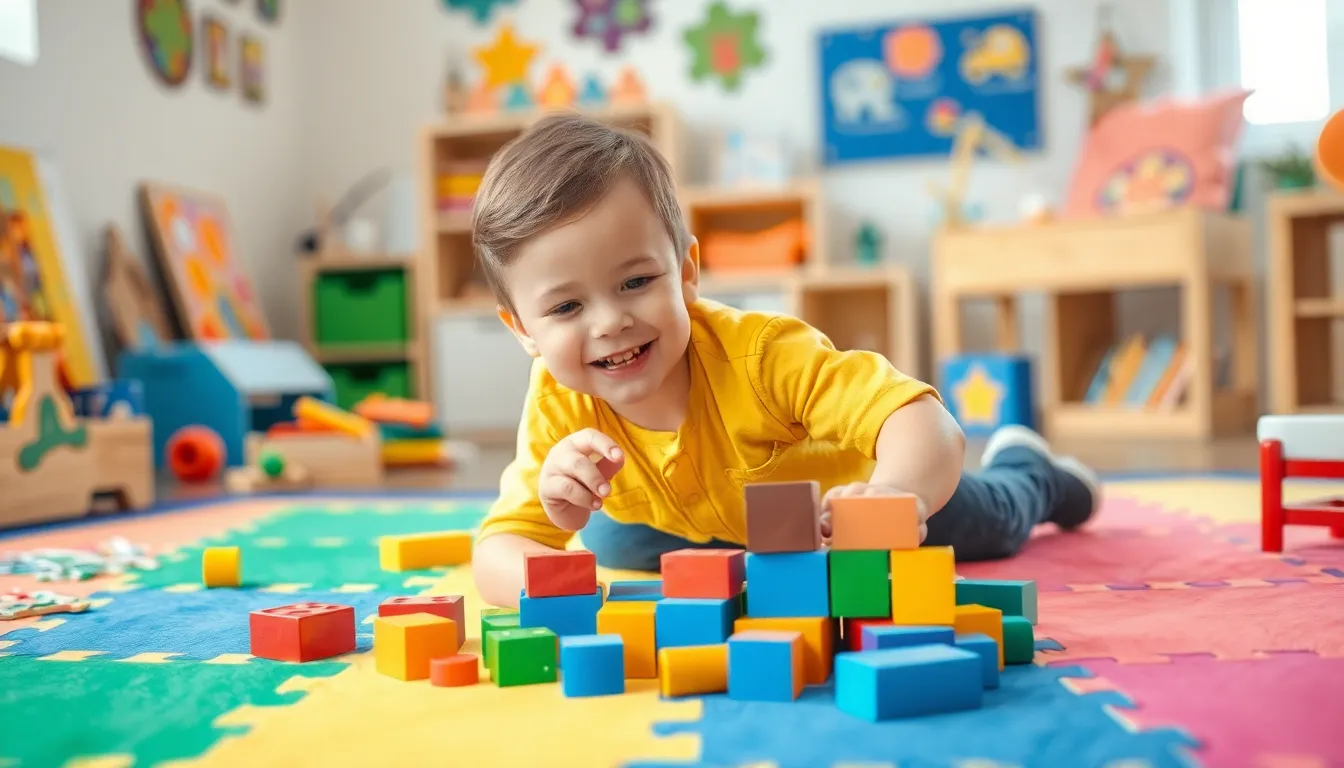
A variety of toddler learning tools exists to support early education. Each type plays a vital role in fostering growth and development.
Educational Toys
Educational toys engage toddlers in play while teaching essential concepts. Building blocks enhance motor skills and spatial awareness. Puzzles stimulate critical thinking and problem-solving abilities. Musical instruments promote rhythm and coordination, encouraging creativity. Art supplies, such as crayons and finger paints, facilitate self-expression and fine motor development. Each toy serves as an opportunity for hands-on learning, making education fun and effective.
Interactive Books
Interactive books captivate young readers through engaging storytelling. These books often include touch-and-feel elements or flaps that reveal surprises, enhancing sensory experiences. Storybooks featuring repetitive phrases strengthen language skills and boost vocabulary retention. Characters and colorful illustrations hold toddlers’ attention, encouraging a love for reading early on. Reading together fosters bonding while introducing new concepts in an enjoyable manner.
Learning Apps
Learning apps offer convenience and flexibility in accessing educational content. These digital tools frequently include interactive lessons, games, and activities tailored to toddlers’ interests. Apps focus on fundamental skills like counting, shapes, and letter recognition. Customizable features allow parents to track progress and adjust content according to individual learning paces. Engaging graphics and sounds maintain toddlers’ interest, making screen time an enriching experience.
Benefits of Using Toddler Learning Tools
Using toddler learning tools offers numerous benefits that support overall growth during early childhood. Engaging these resources promotes development in various areas, creating a well-rounded educational experience.
Cognitive Development
Cognitive development thrives through the use of educational tools. Tools like puzzles and building blocks stimulate problem-solving skills and critical thinking. Engaging with interactive storybooks enhances language acquisition and comprehension. Variety in learning experiences keeps toddlers mentally active and encourages curiosity about the world around them. Memorable moments arise when toddlers explore concepts through play, making abstract ideas more tangible.
Motor Skills Enhancement
Motor skills improve significantly with dedicated learning tools. Fine motor activities, such as manipulating small objects or using art supplies, strengthen hand-eye coordination essential for writing and self-care tasks. Gross motor skills benefit from outdoor toys that encourage climbing, running, and balance. Engaging in these physical activities fosters confidence and physical fitness in toddlers. Offering diverse resources helps address different skill levels, ensuring each child experiences growth and development tailored to their needs.
Social Skills Improvement
Social skills see noticeable improvement with interactive learning tools. Group activities involving building blocks or cooperative games teach toddlers important lessons about sharing and teamwork. Engaging in play scenarios fosters communication and empathy, laying the foundation for healthy relationships. Reading together from interactive books promotes discussion and connections between peers. Such tools create opportunities for toddlers to practice social behaviors and feel comfortable in various environments.
Choosing the Right Toddler Learning Tools
Selecting appropriate toddler learning tools ensures children engage in meaningful educational experiences. It’s crucial for parents and caregivers to consider the developmental needs of toddlers.
Age Appropriateness
Age-appropriate tools cater to toddlers’ specific developmental stages. Toys labeled for ages 2-4 encourage exploration of basic concepts like shapes and colors. Activities should align with a child’s growing skills, facilitating both curiosity and understanding. For instance, large building blocks enhance motor coordination, while simple puzzles develop problem-solving abilities. Choosing items based on age recommendations supports optimal learning outcomes. Tools that challenge without overwhelming toddlers foster a sense of accomplishment and improve confidence.
Safety Considerations
Safety considerations play a vital role in selecting toddler learning tools. Stringent safety standards protect children from potential hazards. Look for toys made from non-toxic materials and that lack small parts to prevent choking. Inspect items for any sharp edges or breakable components. Regular monitoring during playtime enhances safety by ensuring toddlers use tools appropriately. Ultimately, understanding safety requirements assures parents that their children’s learning environment remains secure while they explore and play.
Toddler learning tools are essential for nurturing a child’s curiosity and creativity. By integrating play with education, these resources not only make learning enjoyable but also promote essential skills that lay the foundation for future success. Parents and caregivers have a wealth of options to choose from, ensuring that every child can find tools that resonate with their unique learning style.
Selecting the right tools can significantly impact a toddler’s development. With thoughtful consideration of age-appropriateness and safety, caregivers can create a rich learning environment that encourages exploration and growth. Embracing these educational resources paves the way for a lifelong love of learning.

